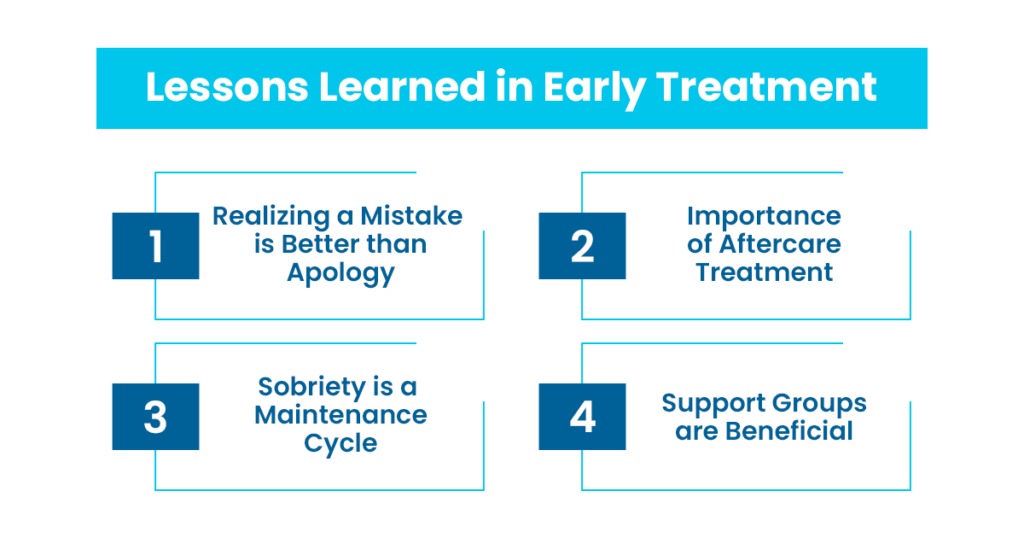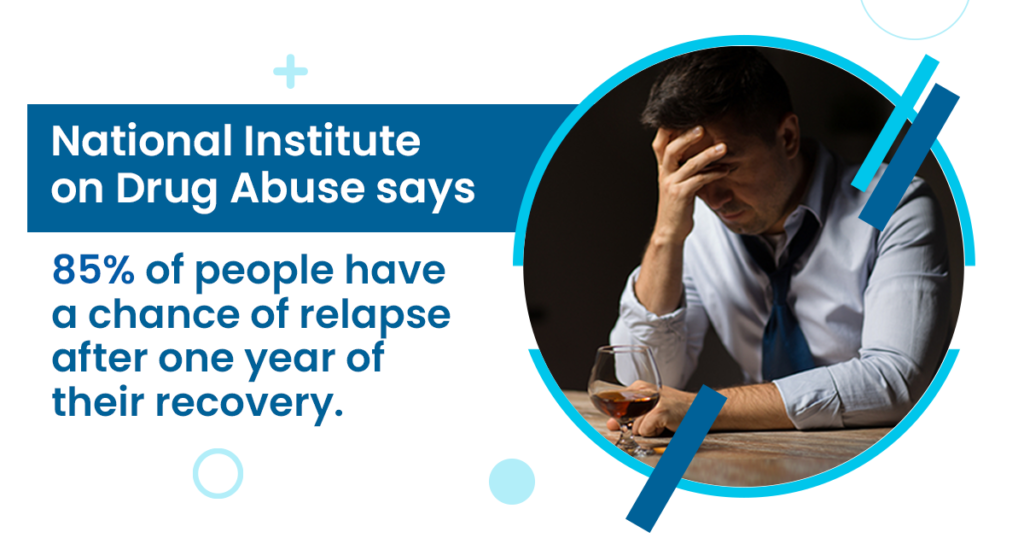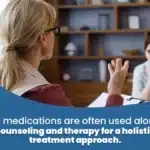
It can be challenging for those in early recovery, but it is possible to reach recovery when you adopt the foremost options. At times addiction can become so intense that people find themselves feeling helpless. These individuals may experience consequences such as cognition problems when dealing with addiction. If you have tried different things on your own, but nothing has seemed to work, speaking with your doctor and finding an effective treatment program is your best option.
Recovery becomes essential when the individual begins experiencing severe withdrawal symptoms that impact their health and make it difficult to quit their use. Long-term sobriety requires devotion, and facing everyday challenges without the use of substances is integral to get abstinence.
Despite that, the first year of recovery can also make you prone to a relapse if you don’t follow exemplary practices. It’s not easy, but it is not beyond the pain you experience daily when battling addiction. Your relationships are widely affected due to your addiction, and you may lose friends each day when you are undergoing an addiction.
Initial Stage of Treatment
When it comes to the beginning of the treatment, it is best to enter a reliable alcohol and drug rehabilitation center. At the start, when there are severe withdrawal symptoms, it may seem uncomfortable. You may contemplate at first that your substance use problem is not more significant, but such thinking can dismantle the treatment that takes place. You will then get back to living comfortably when you recover from substance use disorders after receiving medically assisted treatment and detox. You can consider medically managed inpatient rehab that focuses on your early recovery and sobriety.
Therapy Rehab
You can continue therapy, and it is still possible that not all withdrawal symptoms will disappear. After you complete rehab using the proper treatment in a residential facility, the step you focus on is early abstinence. The early recovery allows you to understand that you are not powerless over an addiction but can get sober while combating the chronic disease of alcoholism.
A person’s recovery factors can also depend on their family support. Your recovery needs are intensive care, and when the medical professionals who have a thorough understanding of the context will help you with talk therapy, it can be proven fruitful.
Realizing a Mistake is Better Than Apology
You will more likely benefit from realizing the mistake and understanding how it affects your new relationships. Not all people will be pleased with the apology sometimes; it is better to understand your mistakes. To get rid of alcohol, you must maintain abstinence for at least 90 days. You can get rehab in an inpatient treatment facility. Meanwhile, relapse prevention is the primary goal you can fathom at the stage of treatment.
Aftercare Treatment
The goal of addiction recovery is based on the first five years of sobriety, in which you abstain from substance use disorders. You have to use the techniques and ways that you learned in a rehab counseling session to avoid abusing substances.
Psychotherapy and cognitive behavioral therapies can help you cope with your addiction. Addiction treatment helps you with the ways that can be imperative in maintaining abstinence. The early days of humanitarian response and emotional support play an integral role in recovery.
Maintenance Cycle
Recovery is only half the job. Maintaining sobriety is essential during the maintenance cycle in the long run, for six months after you receive treatment. Mainly, it has been observed that people tend to have chances of relapse even after successful recovery treatment takes place. According to National Institute on Drug Abuse, about 85 percent of people have a chance of relapse after one year of recovery from addiction treatment.
Support Groups
A recovering person can agree on the affirmations through 12-step meetings and groups like Alcoholics Anonymous. These groups help support a patient and encourage them to stay sober. Support groups can help an individual abstain from alcohol and other substances used.
In twelve-step support groups, you also meet new people who can help you to remain aside from any relapse issues. Here you get humanitarian support. It is the key component to refraining from addiction. These humanitarian programs are backed by sustainable recovery.

Frequently Asked Questions
What’s considered early recovery?
Starting from the first minute, a recovery completes to three years of recovery are counted in the early recovery phase. Primarily early recovery is also thought to be between the first six months to the second year of a recovery. During this timeframe, people go through millions of emotional changes and a revolution in themselves.
What does recovery mean in addiction?
When you recover from a substance use disorder, it is often termed as the process of bringing good changes such as improved physical, psychological and social well-being. It can enhance your self-esteem and improve your health which has been fragile due to substance abuse-related problems.
What are the 4 levels of the addiction process?
The four levels of the addiction process involve Experimentation, regular use, high-risk use, and addiction. Several factors are responsible, such as genetic predisposition, environmental factors, socio-economic issues, and homelessness can lead to such chronic disease of addiction.
Count on The Haven For A Smooth Addiction Recovery
You can count on a trustworthy treatment facility like The Haven with the right expertise to help you recover from an addiction. Our state-of-the-art detox facility to treat alcohol withdrawal focuses on premium care.
We focus on the patient’s well-being as we help them with talk therapies like cognitive behavioral health therapies and other counseling sessions.
Our medical professionals emphasize an environment where substance use disorders and different mental illnesses can be evaluated and given care. Feel free to contact us at (561) 328-8627 when you are ready to get started.






